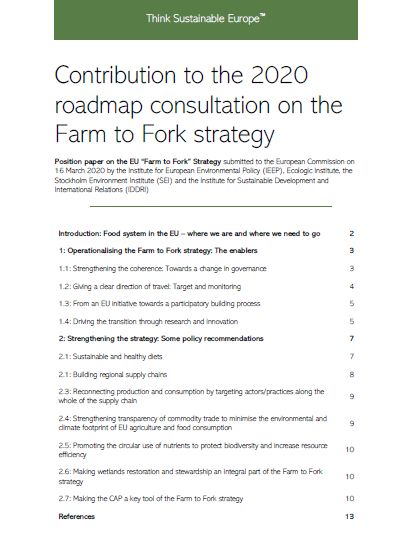This project seeks to bring available knowledge together on the future of the EU agricultural production, including on possible sustainability gaps in the form of food, water and energy security, land take and GHG emissions that need to be closed by 2050. The results contribute to a better understanding on how the agricultural sector can contribute to climate-change mitigation and biodiversity conservation, taking into account the growth potential of the bioeconomy and its impact on the environment.
The bioeconomy and sustainability gaps
As the EU's Bioeconomy Strategy and Action Plan point out, the bioeconomy holds the potential to reduce the EU's dependency on fossil-based resources. Mainly in the form of food and feed, the agricultural sector provides the biggest contribution to the bioeconomy and is both very sensitive to and a major contributor to climate change. Addressing both issues simultaneously is complex and comes with variety of trade-offs. For example, increasing the rate of agroecological farming reduces the use of pesticides and fertilizers, but requires more land compared to conventional farming.
The reform proposal of the Common Agricultural Policy (CAP) for the 2021-2027 period considers biodiversity and climate elements, but does not contain concrete environmental targets. Associated EU policies such as the draft Biodiversity Strategy and Farm to Fork strategy include such targets, but these do not explicitly link to expectations on how the bioeconomy, including the demand for biomass and associated environmental pressures, might develop in the long-term. Accordingly, there needs to be a better understanding of what future sustainability gaps for EU agricultural production need to be closed, and what trade-offs play a role in the process.
Methodology
The project team conducts a survey of existing scenarios on the development of EU agricultural production with a 2050 time horizon, which they will then synthesize into several possible development pathways. Subsequently, the project team identifies emerging sustainability gaps, as well as possible adaptation and mitigation measures the EU might implement to close these gaps. Ecologic Institute leads the survey on existing scenarios.



